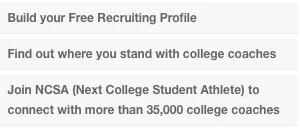NCAA Opposes Miami’s Motion to Dismiss
Yesterday CBSSports.com reported that the NCAA enforcement staff has filed a response with the Committee on Infractions. News that the Committee on Infractions denied Miami’s motion would not have been noteworthy. The Committee on Infractions has repeatedly said it does not have the authority to dismiss the case at this juncture. But the enforcement staff is taking the motion much more seriously:
Portions of the contents of the enforcement department’s 42-page response to the NCAA infractions committee were relayed to CBSSports.com. That response followed Miami’s motion to the infractions committee to drop the case on March 29. Enforcement’s response is signed by interim director Jon Duncan.
The first sentence of the enforcement response reads: “From the enforcement’s staff perspective the motion to dismiss by the institution and involved individuals are attempts to deflect attention from the significant allegations that remain in the case.”
42 pages would be long by Notice of Allegation standards. Some serious time and effort went into preparing such a response. Time and effort that must have been diverted from preparing for the upcoming hearing in front of the Committee on Infractions where the enforcement staff should expect to have as much of the committee’s anger directed at them as at Miami.
The fact that the enforcement staff put as much effort into the case as they did validates Miami’s tactic. The NCAA has allowed itself to be motion practiced. Expect schools in the future to try the same maneuver, filing “motions” with the Committee on Infractions in advance of a hearing, whether such motions exist or not. These motions could include requests to dismiss the case, challenging specific pieces of evidence, requesting additional fact finding, or attempting to depose witnesses or NCAA staff members.
This goes doubly so if it successful. The NCAA’s response means it is unlikely that the enforcement staff will withdraw the case at the prehearing conference stage. But it could still lose out in front of the Committee on Infractions. So long as schools feel like the potenial delay is worth the increased possibility of winning an acquittal, we could see more of these moves in future cases.


